Mehr News English Desk had the opportunity to sit with two Polish professors of political sciences last week to discuss their area of expertise on Middle East. Here is the full text of the roundtable with Prof. Rafał Ożarowski and Wojciech Grabowski from Institute of Political Sciences of Division of Non-European Country Studies.
Shall we start with Lebanon? It has always been a question to me why in at least about a decade we have always had problems with choosing a president in Lebanon? Why does it happen?
Ożarowski: Because of the Lebanese political system, its specific political construction, I mean president is chosen by the parliament (Majlis), and if there are some crisis they can block choosing the president in parliament and at this moment they are doing so. Since many months there is a problem with choosing president so there is a vacancy at the post of president in Lebanon and somehow it makes instable political situation at this moment because the prime minister is a temporary president at this moment just they choose the president officially and I think it is also related to tensions inside the Lebanese society which are the result of the Syrian war and crisis of refugees in their own country because as you know almost two million refugees are present at this moment in the Lebanese soil and the population of Lebanon is around 4/7 million; so it means they have more than 25 percentage of its own population extra so actually they can’t do with that, they can’t find proper solution how to solve the refugee crisis inside country and I think that the Lebanon is on the bring of a humanitarian crisis or even now they are in the humanitarian crisis because the refugees need some basic existential goods like drinkable water, food, accommodation and so on and it causes also a lot of tensions inside the society; rates of unemployment in Lebanon is definitely increasing because every owner of the factory or company can employ Lebanese refugee who can work for just half salary which can get a Syrian citizen, so it makes some political and social tensions and also we can say that the problem of election of president is the result that these sectarian groups in the crisis are trying to realize their own interests because they don’t trust the system.
Make it a little broader Lebanon is a place that many other countries are somehow involved in one way or the other; be it Iran or the United States or other Arab countries in the region or even Israeli regime, in that sense, I mean considering the other countries this vacancy in the presidential post how does it serve or work against the benefits of any of these countries which have more role and influence in Lebanon and in what ways?
Ożarowski: I think Lebanon, since the 70s, is kind of territory which is very vulnerable for he foreign interferences, so if we just look at the current situation of the state we can notice that a lot of states want to have partial or total influence in this country, among them is of course US, France, because of the historical reasons, in the past it was Syria specially but now this case is out of question and Saudi Arabia because of the support given to Hariri family and because Rafiq Hariri was also a Saudi citizen and his son who is now a political leader, Sa’ad Haririr in Lebanon, he has got also a Saudi citizenship and Iran because of links with Shia Hezbollah and Shia society in Lebanon and I think that from this point of view for some states it would be advantageous not to have the Lebanon stable with president having its own power at its own hands; it is difficult to estimate because there are a lot of factors at this moment specially the Syrian war affects the Lebanon to great extent and I think that in this case I would say that Lebanon is one of the biggest victims of Syrian conflict as a neighboring state because of course there are a lot of refugees in Turkey, but Turkey is a big country, there are almost 80 million people, they can coup with that, they can manage and fine some solution for the situation, they can negotiate this with European Union, the issue of Syrian refugees, Lebanon cannot do this; Lebanon, I think, must face this problem on its own, so it is really devastating for this country in many dimensions at level of politics and social issues
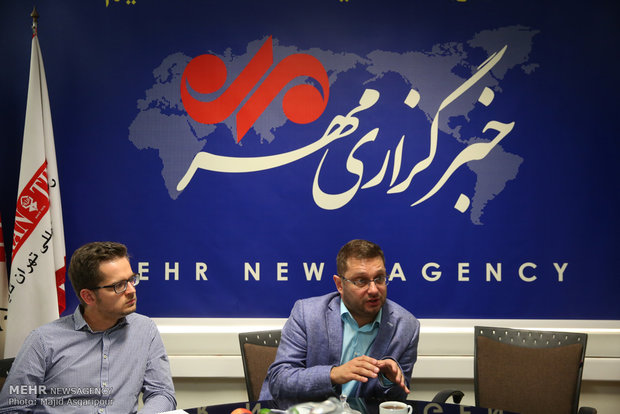
So you say it is not easy to say who is benefitting because it was a few days ago that Arab League accused Iran of intervention.
Ożarowski: I think that it is not possible to evaluate the situation precisely who is being beneficiary that there is no president in Lebanon at this moment; it’s just a kind of rather let’s say a block, another block in political tensions inside Lebanon; but I think all of the states can be beneficiary as much as they can in Lebanon; but we need to take into consideration the situation in Syria at this moment specially; that’s why there is no some kind of reasonable explanation according to me, because the crucial issue is this war in Syria and then Lebanon, which is a kind of state which is permanently affected by the situation in Syria so first of all we need to concentrate on Syria to see and describe the general situation and try to understand the visions and the politics which is inside this country regarding also participation of foreign countries and then we need to proceed to analyze the Lebanese situation.
As you mentioned, one of the main factors in Lebanon is Syria, and I think that Syria is actually one of, if not the only, top factor in the region. The Middle East future can be found in Syria, would you share my view in that the Syrian situation reflects the general future of the whole region? How is it going to effect the events in ME?
Ożarowski: I think it is a basic question which considers the future of the ME. Because, if you want to describe the situation, in general, we must bring the focus into the Syrian war, the whole political situation has been created by itself and by external powers. Before 2003, we have a sort of stability in Iraq, which is now missing. However, first, Iraq pretends to be a normal state, while it is not, and the second state is Syria, which is by no means a state and there is a total war in Syria. In the past, the latter played very specific and important role in the ME, just Iraq did. At this moment, if we have no Syrian state, the least issues which once were solved by support from Syria, or where Syria was needed like the Lebanese and Palestinian issues, not it is completely out of question. It means that for example, if we can make some sort of vision, Syria will not be a state like it was anymore, and can be divided into smaller states, there is some sort of possibility that Syria would be a federal state, and almost a confederation. I think any of solutions good for the ME should be partial solutions, which can still face problems with smaller states divided and unstable, and definitely, there is no possibility for me, to make some clear vision for Syria in the future, a positive vision at this moment.
I’ll give you just simple example of the Kurds in the north; they just declared the autonomy of the region to fight ISIS [Islamic State], to which we have seen Turkish reaction. They normally disagree with any condition in Syria and generally, Turkey would disagree with any development in the north, because of their own problems, the internal politics. However, I think, the crucial thing here is cooperation of external players, just one we saw few weeks ago where Russians and Americans forged a cessation of hostilities, and Assad and opposition agreed under foreign powers’ umbrella. The most negative factor is that there is no positive solution in the horizon for Syrian crisis. There are however some promises that one can take up as some sort of opportunity for a solution, which will be among the three possibilities of federalism, disintegration, and a confederation. None of these three are positive actually for Syrian situation and for the ME. Somehow, in the future, the ME is a region facing a week Syrian state. It is not Iraq, but there is some similarities. This is the main answer for Syria, the external powers, and the possibility of the solutions, ISIL likes this situation.
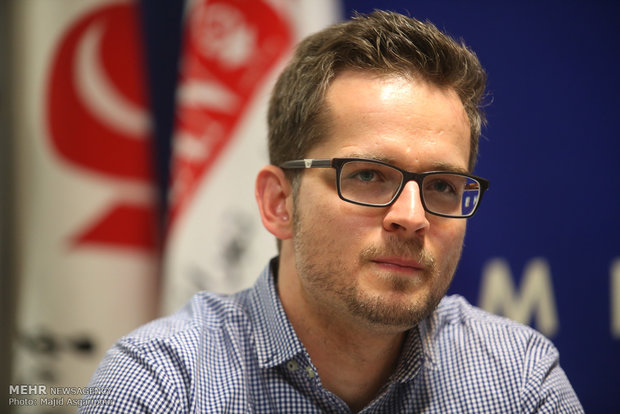
Grabowski: if I can add something; the situation in Syria is a kind of trap, basically for whole ME, not only because there it is difficult to find a good solution, which will be satisfying or engages all states into this conflict; first of all, there are too many sides to the conflict; that is why it is difficult to find solutions to the crisis; compare Syria to Iraq in some form or another, the conclusion will be that Syria should find its way to get its sovereignty, there should not be interference from outside. This is the first condition to solve the conflict in Syria. The second condition is the answer to this question that should Bashar al-Assad stay in power or step down. Some countries support his reign, but some others actively oppose his rule. This is also a conflict by itself which needs solution. If we take a look at Iraq, you will find that Iraqi way out of the conflict crossed the authority and the decision sovereign nations decided for Iraq. The same sovereign nations are at play and should do the same job in Syria. If Syria fights a proxy war for other states, the conflict will be difficult to solve. In the level of analysis, some observers believe the conflict could be solved by power, but with a sort of cooperation, and an avoidance of rivalry and influence over Syria, namely, between Russian and the US. The third condition is stabilize the situation, which will be the most difficult stage in conflict solution, since there will be a process of state-building, where we have still a long way and are in the beginning of the process.
Can the solution be sought somewhere outside Syria, as you said, if Syria was fighting a proxy war on behalf of others, [I believe] not only in Syria, but in Yemen and elsewhere in the ME. In an article here in the Mehr News, I compared situations in Iraq and Syria. In 2003, we did not have many players in the region, only Iran was a player as neighbor for its mere interests. Neither other players which are not active in Syrian crisis were present in Iraq then. In Libya, the ruler Qaddafi was removed, however with devastating consequences. The US sought, it was discussed, the removal of Assad in Syria as well. Libya now is in utter ruin. In Syria, many players are in the frontlines, Iran, Russia, and even China, who are supporting Assad government, and we have the US, Turkey, and other Arab states. My first question is if you agree that as some believe, not necessarily my point of view, that during this recent ceasefire US could not convince the group that it supported to abide by the ceasefire and the reason they believed was that Turkey and Arabs were not buying what they did not agree with the deal US were dictating to them in Syria. I want to know if you agree with this idea that Turkey, Saudi Arabia and Qatar, as the main players, are not any more just followers of the US policy in the region or at least in Syria and if so how can it be solved in outside Syria, I mean how Iran and Saudi Arabia, or Iran and Turkey or Russia and Qatar for example can solve it out of Syria to make it actually possible inside Syria?
Ożarowski: We had an example about this agreement and ceasefire you mentioned that there is a capability together and to reach agreement. According to me, there is the only solution even not now but even in the future that to stop war in Syria and to convince by the way all the parties fighting with each other and the best way to do this it is to reach an agreement by external players. I do not believe that Syrian parties can come to terms together with no any external help for support, it is first. Second, I think it till now and probably in the future the biggest players are US and Russia, then the second role is for Turkey and Saudi Arabia. According to me, these two states because of their military capabilities and the military support to the parties which was given by these two states.
The extension of military support does decide that these two powers can only be able to work out some positive solutions. I think that till now we can regard this ASIS fire agreement as kind of start of a positive fair solution because there was no chance for something more advanced till now and normally we need if you want to solve the work crisis we need to stop with ceasefire then we can proceed to some kind of an agreements step by step to reach the most wise agreement at the end.
And the obstacles by the way, just basically it is the violation of the agreements which can happen in any time, lucky to us after the agreement which was declared in February this year. This agreement was violated many times and that’s why they needed to come to terms once again and I think it's much more by the way regarding these two powers Russia and US, is much more complicated, because we need to take into consideration the presidential elections in the US. They will not do enough things like I think special now this moment, they will not take any advanced steps regarding Syria before the elections. It is normal for the US policy trying to be quite just before one of the main political events in the political system.
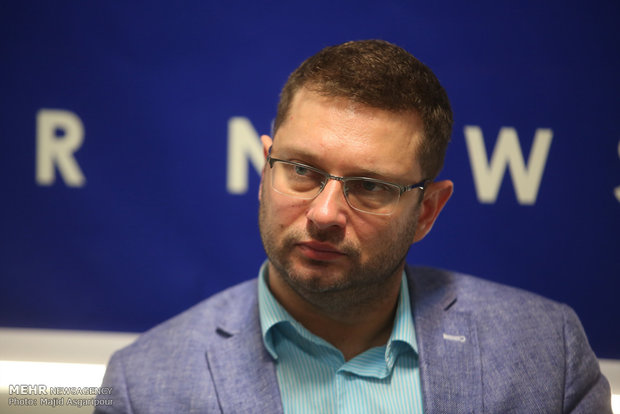
And actually from looking at the Russian site we see that Russians have bad economic conditions dealing with sanctions which are imposed after the Ukraine crisis. And I think that even if we don’t know this officially there must have talks about this issues in official way together, and then this agreement can be also regarded as some kind of sn agreement between Russia and US just in order to decrease the tensions and just to calm down a little bit before elections and then instead US could have promised probably to Russia that they can also decrease their imposing policies on Russia so I think it can look like that because I can come to the beginning of my speech this moment, what I said at the beginning of my speech in this part, and that I don't believe that the internal parties in Syria, governmental forces, opposition, we have also other different parities which are not taken into consideration regarding the agreement, I mean Jabhat al Nusra and ISIS. They are labelled as terrorist groups so they are out and just excluded from any agreement but they are present, it does mean they exit; normally it is just a partial agreement when they try to estimate situation overall so we can see that it is just a partial agreement and this is the reason, according to me to name reason that Russia and the US are the most important places, it is a kind of proxy war actually which maybe it happened after the end of the summer but now it is the most visible case, we had a Russian troops actually present somehow in Syria. Of course, Putin decided to take this troops back to Russia but then they are still present in only Syrian soil and maybe just to conclude regarding this part, all noticed that Syrian war since the beginning and till now it's connected directly to the Ukrainian case also, because the case of the Ukrainian crisis and in Donbas area is something crucial for the Russian aspirations, for the Russian idea of rebuilding powerful position.
If they lose influence in Ukraine, they will never become the boss; that's why they will never let themselves to lose this control on this country. If they cannot control this country with 100%, they are still trying to have influence even in parts of the country and in keeping this state unstable. It’s kind of a policy.
Probably because there is no any official evidence for that, the engagement of Russians in Syria had to be explained. First, it was a kind of a revenge of the Ukrainian interference by external states European and the US in Ukrainian issues and Ukraine which is concerned by natural zone of influence of Russia and secondly it was kind of a forum to maintain its own influences in the ME for the military bases which is used by Russia. Tartus especially in the past and now is the only base of Russia in the Mediterranean area and they always wanted to have an influence on Mediterranean area so they did as much as they could to maintain its own influence in the ME and in Syria, because Syria was the biggest ally of Russia actually and they can let themselves lose connection with Syrian, Russian connection.
Therefore, you say that the policy that Russia is following in Syria is a sort of compensation for losing its dominance over and influence in Ukraine; right?
Ożarowski: It is not a kind of compensation; it is kind of a revenge policy. They just turned into Ukrainian case, its own policy and our natural zone of influence, so we don’t let them do things as they wanted in Syria; so from the Russian point of view, it is very rational because just imagine it is like there was a crisis in Venezuela and on the very next day there were some kind of Russian advisors, officers just in the zone influence of US in South America. Therefore, I don’t believe that the US politicians and President and administrations were really satisfied with this fact so it worked like that. So that’s a compensation out of a revenge policy and with maintaining its own influence in this country.
Because they really rely on this country under the al-Assad ruling. Actually, since the war started, Assad was busy with states. He was in Russia, in Moscow over almost a year and some months ago. It speaks for itself; it was an official support given to Assad, considering the fact that President Putin welcomed him in his own capital city and held meetings with him.
Grabowski: I think the first question to ask is if Iran would support the deal between the United States and Russia; if yes, that would be helpful, if not, it would be difficult to find a solution. The second question is how the solution should be imposed or proposed to the Syrian government: is the deal going to take place in cooperation with Assad or should it be imposed on him? Because I do not think Assad would give up his power, therefore the deal must include him as well.
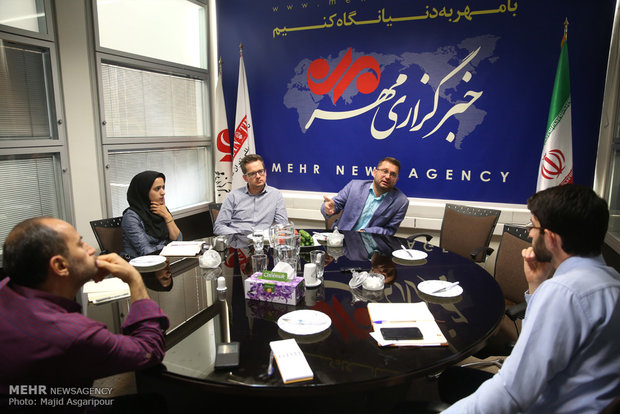
Let’s talk about the refugee crisis and how Poland has actually slammed the door on refugees, refusing to accept them. What is the actual reason behind that refugee policy, and is it going to help or hurt the solution to the Syrian crisis?
Ożarowski:We should take a number of factors into consideration; first, the current administration of Poland is keen on using nationalistic and patriotic phrases unlike the previous government, which perhaps makes it seem like the current Polish government is xenophobic, but the issue of refugees has made a great controversy in the European Union, something like a political earthquake. There was a lot of discussion and debates in the EU, among all countries including Poland. The Polish government came hard on its refugee policy because of what it saw in France, Britain and Germany and the problematic issues with the minorities. Especially in France, where we have the largest population of immigrants from Northern Africa, Nigeria, Morocco, Senegal, Ivory Coast, because of historical reasons. Some of these immigrants did not adopt to the situation in France, they lived in the ghettos and thus, didn’t feel like they were a part of the French state. So the policy of multiculturalism, according to many political experts, somehow failed in western European states. And when you now look at the political stances taken in Eastern European countries, particularly Poland and before that Hungary, they are facing a lot of problems with refugees who were coming from the south of Europe. So one reason for this anti-refugee policy is that the politicians see how the multiculturalism has failed in western European countries and now want to make a stance to avoid those issues and discourage the society from being more open to accepting foreigners.
The second reason is that we already have a lot of Ukrainian immigrants here due to the bad economic situation of their own country. Nearly one million Ukrainian people work in Poland. So the Polish government made a stance that the country cannot take any more refugees. Personally, I disagree with the government’s stance and find its argument ridiculous.
The third reason concerns the geographical position of Poland, which is on the brink of this immigration issue. Poland is not exactly on the first row of this problem. If it were in the position of Greece, Italy or even Hungary, we should have declared a different stance toward the refugee crisis. At this moment, we cannot afford such a declaration, unfortunately. The situation is too complicated to explain in a few minutes. Probably, with a different type of government in Poland, we could have declared a different stance toward the refugee issue. But this is just hypothetical. Also, the EU leaders have suggested that Poland should accept 12,000 refugees as part of a proposed quota system, which compared to Lebanon with its 1.8 million Syrian refugees is actually nothing. It actually shows how this discourse is pointless. I am, of course, critical of my government for taking this anti-refugee stance, I have just tried to explain the reasons behind that stance.
Grabowski: I can shortly add something. Just as my colleague mentioned about situation of Muslims in France and Great Britain as minorities have some problems with integration; of course he didn’t name the issue which Polish government is calling directly, this is also about the terrorism threat. Polish government is worried that some refugees can potentially be terrorists and can be dangerous to our security. The second point is that Poland, is ethnically a riot unionist country. We don’t have a lot of other minorities like Muslim minorities or even the western minorities from Western Europe. This is also another reason government is about potential integration of these immigrants with Polish society. That’s why they don’t want to receive more immigrants.
There is another issue I want to add which is not much related to immigrants; for many years, Poland has had a low birth rate so we don’t have enough work force who will be working to earn income for older people. Some analysts and researchers claim that immigrants are one of the solutions of this problem. If we receive more immigrants, they will work for the country, but this argument is not going to find any respond from Polish government’s side.
Ożarowski: regarding the topic of Syria and beneficiaries in the country I want to add that to my understanding, one of biggest beneficiaries is Iran wants a weak Iraq; because a stable Iraq in the past which had strong links in Middle East and Iran had 8 years of war with Iraq which one can say was over primacy in Persian Gulf; now as a neighboring state, a weak state with its own problems that they can cope with that and it is not a militarily strong country as it was in the past, and with Syria which is actually a state and in state of collapsing and the problems of even Hezbollah and Israel in Syria and all the parties involved in situation in Syria, with the whole instability in Middle East, it is kind of a chance for Iran as a country with the most stability in region to become much more stronger in the Middle East and become a regional power; because it has the population, resources, territory and geopolitics of Caspian Sea and Persian Gulf, between NATO states and central Asian countries and Indian subcontinent gives Iran fundamental position to realize all interesting the Middle East especially after signing of the nuclear agreement.
Since Iran has a very good opportunity to become a very strong regional power especially Saddam Hussein collapsed and then Arab Spring which toppled Mubarak in Egypt and situation in Syria including the situation with the nuclear deal which gave Iran chance to get on wolrld oil market and of course I think one of the main goals of Iran now – may be already achieved – is to be recognized by external powers like US, Russia, European powers as a regional power.
If western and external powers accept this role, would regional states accept this role for Iran as well?
Ożarowski: I don’t think Saudi Arabia would accept because it sees itself a unique state in Middle East where Islam originates from and Mecca and Medina are located and with potential oil resources but I don’t think it is a matter of acceptance by Saudi Arabia; it is a matter of fact according to me. To be stronger in international relations is also to have better relations with other states and to try to convince others that you are a reliable partner. It is not a matter of approval by Saudi Arabia. If some state has potential, if some state can realize its own interests in international arena, and if some state become much more respected, then I don’t think they can do anything against you. They can disagree, but the facts are behind you.
Grabowski: I agree but still I should say it can be hurtful to be a regional power because it changes the attitude of external powers toward Iran; they will not fight Iran as a rival, they would not think of Iran through prism of sanctions or consider military intervention or staff like that. So, in my opinion it is important if Iran uses this potential as it can improve economic situation; so Iran can play a very crucial role in the region and even not only in the region.
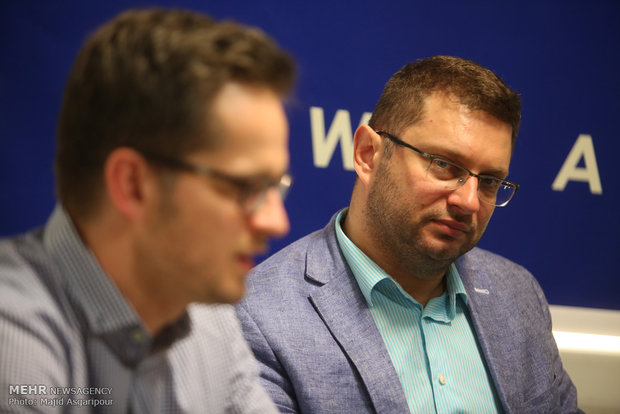
Recently, there was a conference in Grozny, Chechnya on who Sunni Muslims are and there was high controversy as they did not invite anyone from Saudi Wahhabi figures; is t a sign that other Arab states are trying to undermine Saudi Arabia’s role and influence in the region?
Ożarowski: I am not completely sure but I do not think that Saudi Arabia can undermine Iran’s role in the Persian Gulf because of three reasons. First, all their income comes from selling the crude oil and they lack a diversified economy. Second, they have a lot of internal issues like the pressure of Wahhabi on the King family. Of course, behind them there exists the same factor for several decades which is oil. They possess 21 or 22 percentage of the world’s oil resources which proves to be a huge figure that has major influences on the international areas. They can use oil as a means to improve relations with the US, Russia and many other countries. Given that they are a rich country, they can decide on oil prices or manipulate them. They can also convince different smaller states to follow them. The third issue is that if you compare Iran with Saudi Arabia, Iran enjoys several advantages including human resources, oil and gas as well as geographical position and the geopolitical role it can play at the moment in various areas like Caspian Sea, Persian Gulf, Middle East and Central Asia. Iran has many advantages since it has several factors which can be used in creating certain policies while Saudi Arabia lacks them because of its own geopolitical conditions. In conclusion, I think whatever might happen in the world is dependent on external military support because I do not believe that Saudis can manage to lead a war by relying on their own military capabilities. Although they can buy a lot of military equipment, the strength of the army is quite low in Saudi Arabia and you do not need to be a military man to realize this. If you just take into consideration the previous war in Yemen, Saudis lost many of their soldiers which shows that they have no military potential. The second case pertains to the year 1990 just after the invasion of Kuwait when Saudi Arabia asked for US intervention, US command and US forces because they themselves had no military capability. So, this is the reason that it is not worth consideration if they accept or nor accept Iran’s role since all facts are now on the side of Iran for it to become a regional power.
Grabowski: My opinion on Wahhabi Islam is that it is being blames by other Muslim states over the conflict which Saudi Arabia is leading. Therefore, the question is whether the two, Saudi authorities and Wahhabi clergymen, can be divided. Of course, there is a long history of cooperation between the two; still, it would be somehow helpful to perceive Saudi Arabia’s stance on some Muslim and Islamic issues. Of course, some Muslim states blame Saudis for its conflicts with Egypt, Iran and some other Muslim states like Syria. This is because of the Wahhabi version of Islam and its hatred towards Shias. They want to dominate and they want to impose their own version of Islam which is aggressive. We know that they will never manage to do so but if they could, it would be helpful to Saudi Arabia.
Please feel free to add any final comments.
Ożarowski: I would like to touch upon the role of Poland in the Middle East at the current time. Indeed, Poland is not very much capable to act in the Middle East but I do not want to mention the US and Russia because they are out of question. Because of historical reasons, French and Britain were the first countries to make presence in the Middle East since they were ruling some states. Despite their administration over some countries, their presence remains as a historical complex. However, it was in the first decade of the 21st century that Poland became much more engaged because of the case of Iraq. Poland was sending troops to Iraq alongside the US after the invasion of Iraq in 2003 in order to overthrown the Saddam Hussein regime. Afterwards, we just took part in this military intervention and then we controlled one zone which was given by the US authorities. It needs to be mentioned that the decision was not an easy one for the government of Poland. You need to remember that we joined NATO in 1999 and only after two years, terrorist attacks took place in the US. Then George Bush said he wanted to take revenge with Iraq being the first aim. Poland, as a young member of NATO, was in an extremely tough position. We could not refuse to take part after two or three years of being a NATO member. I am not seeking to bring up an excuse or justify Poland’s taking part in the military intervention but it was a really difficult situation as compared with several other states like France, Germany or the Netherlands who were members of NATO since the beginning of its formation. Poland was present in Iraq for many years until 2008 when its government decided to withdraw Polish troops from Iraq completely. Also in Afghanistan, there was the case of International Security Assistance Force (ISAF) which was established under the United Nations (UN) and the UN decided to give the control of the mission to the NATO. Due to the UN activity, there was not such a big problem with the international law like in the case of Iraq in the past. A lot of NATO states were engaged in Afghanistan and the same case held true for Poland until 2014. This is a very crucial case since after the presidential elections in Poland, the new Polish president officially declared that no troops will be deployed to Syria even if there will be an urgent need to send troops posed by international organizations. “Even if there will be some kind of a coalition, we will not send troops to Syria because the chapter of our military presence in the Middle East is over,” he noted. Presently, we are trying to conduct good relations with all countries. Interestingly, Poland has good relations with all Middle Eastern countries at the present time. Even though not very friendly, current relations are at a very positive level with all of the states like Iran, Iraq, Saudi Arabia, Jordan, Israel, Lebanon, Syria and Turkey. This gives us some specific position just to create mutual relations with all countries although we are not able to play a specific role in the Middle East like other stronger countries.
Interview by Hamidreza Gholamzadeh


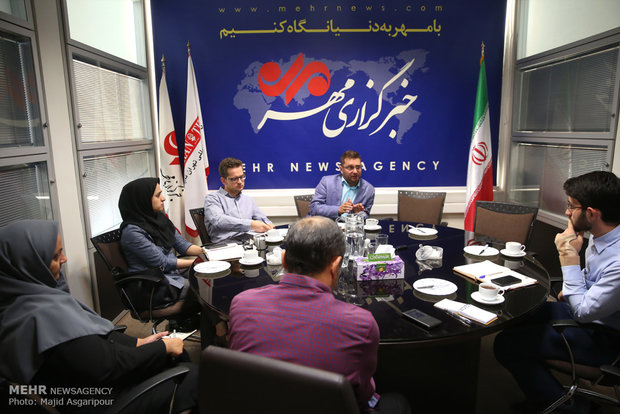






















Your Comment